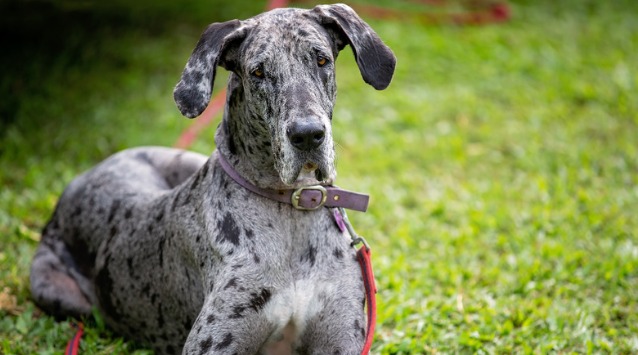Introduction :- What is the Lifespan of a Great Dane
The Great Dane is often referred to as the “Apollo of dogs” because of its majestic size and regal presence. With their towering height and gentle nature, these gentle giants are beloved family pets. However, one of the more unfortunate aspects of owning a Great Dane is their relatively short lifespan. In this blog, we’ll explore the average lifespan of a Great Dane, what factors affect it, and how you can help your Great Dane live a longer, healthier life.
Table of Contents What is the Lifespan of a Great Dane

What is the Lifespan of a Great Dane
How Long Do Great Danes Live?
On average, a Great Dane’s lifespan is between 7 to 10 years. This may seem short compared to other breeds, especially smaller ones that can live well into their teens. However, it’s a common trend that larger dog breeds tend to have shorter lifespans than their smaller counterparts.
Why is the Lifespan of Great Danes Shorter?
What is the Lifespan of a Great Dane Several factors contribute to the shorter lifespan of Great Danes, with size being one of the main reasons. Here are a few key factors:
- Size and Growth Rate: Great Danes grow incredibly fast, reaching their full height by around 18 months. This rapid growth puts a lot of strain on their bodies, especially their hearts and joints.
- Health Issues: Unfortunately, Great Danes are prone to certain health issues, many of which can affect their lifespan. These include heart problems, hip dysplasia, and the most common issue: bloat (gastric dilatation-volvulus), which can be life-threatening if not treated quickly.
- Genetics: Like many purebred dogs, Great Danes are susceptible to genetic conditions passed down through their lineage. Reputable breeders work to minimize these issues, but they still play a role in the breed’s overall health.
How to Extend the Lifespan of Your Great Dane While we can’t control everything, there are steps you can take to help your Great Dane live a healthier, longer life:
- Regular Vet Visits: Keeping up with your dog’s health check-ups is vital. Early detection of any health problems can lead to more effective treatments and a longer life.
- Proper Nutrition: Feed your Great Dane high-quality, balanced food. Overfeeding can lead to obesity, which puts extra strain on their joints and heart. Always consult your vet for advice on the best diet for your dog.
- Exercise: Great Danes are active dogs that need regular exercise to maintain a healthy weight and strong muscles. However, be mindful of their joints—avoid high-impact activities like jumping that could cause injury.
- Preventing Bloat: Bloat is a serious concern for Great Danes. Feeding smaller, more frequent meals instead of one large meal can help reduce the risk. Avoid vigorous exercise immediately after eating, and consider using raised food bowls.
- Joint Care: Because Great Danes are prone to joint issues like hip dysplasia, giving them joint supplements (such as glucosamine and chondroitin) and maintaining a healthy weight can help prevent early joint degeneration.
Common Health Issues in Great Danes Being proactive about your Great Dane’s health can help manage or prevent some of the common issues they face, including:
- Bloat: This is the most dangerous condition for Great Danes. The stomach twists and swells with gas, stopping the blood flow. If your dog shows signs of distress, like trying to vomit unsuccessfully, it’s a medical emergency.
- Hip Dysplasia: This genetic condition affects the hip joint, leading to pain and mobility issues. Proper weight management and supplements can help manage the symptoms.
- Heart Problems: Dilated cardiomyopathy (DCM) is a heart condition common in large breeds, including Great Danes. Regular heart screenings can help detect issues early.
- Bone Cancer: Unfortunately, Great Danes are also more susceptible to certain types of cancer, particularly osteosarcoma, a form of bone cancer.
Conclusion :- What is the Lifespan of a Great Dane
Enjoying the Time You Have Owning a Great Dane is an incredibly rewarding experience. Their loving, gentle personalities and close bond with their families make them amazing companions. While their lifespan may be shorter than some other breeds, the joy they bring is immeasurable. By providing the right care, regular vet visits, and lots of love, you can ensure your Great Dane enjoys a happy, healthy life for as long as possible. Every moment spent with your gentle giant is precious—so make the most of it!
Please Note that the care and maintenance of your pets and its inhabitants will depend on the specific species you choose. Always seek advice from experienced hobbyists or pet specialists to ensure the well-being of your Pets ( visit our ecommerce website thebrreed.com)
Thank you for reading our blog What is the Lifespan of a Great Dane ?



